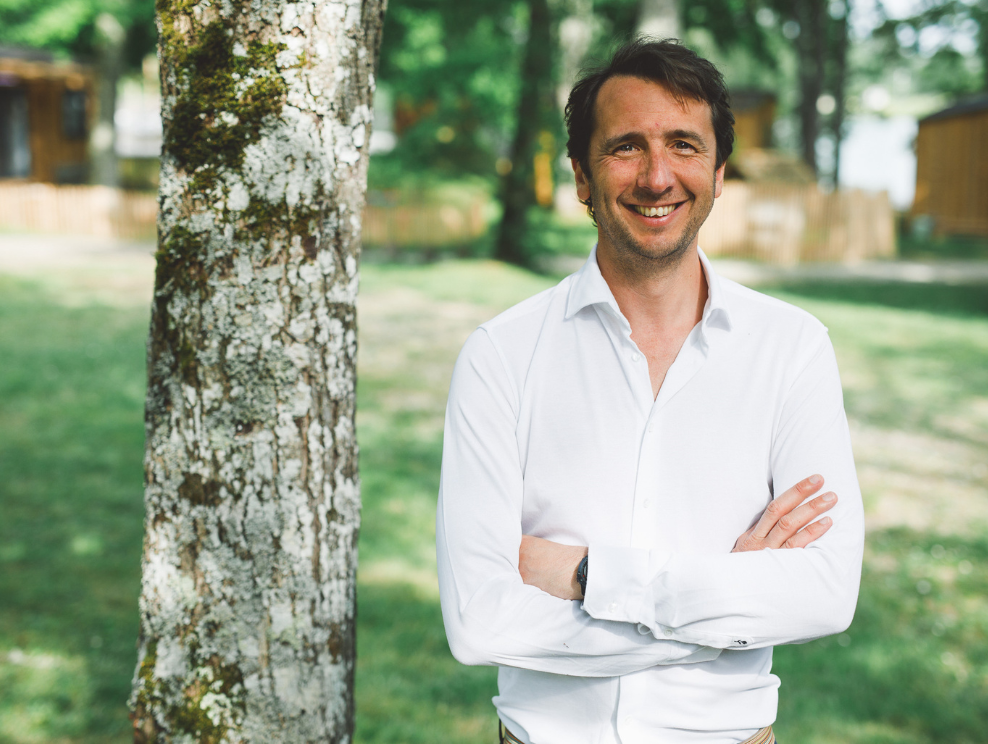The proposal was intriguing: trade your house for one in Northern Ireland for a couple of weeks at a great cost savings to both parties. The visitors from Ulster would treat Doug Ross’s Nepean home as if it were their own and Ross and his wife at the time would be expected to do the same.
“We were very fortunate because [our neighbours next door in Nepean, Ont.,] knew and vouched for the people in Ireland,” recalls Ross, a Federal Retiree now living in Kelowna, B.C. They even loaned each other their cars, but not until after vetting the idea with their insurance companies.
Through his neighbours, Ross communicated with the family in Ulster and developed a trusting relationship. And even though he’s never repeated the experience, he wholeheartedly recommends home exchanges to others.
“That worked out quite well for all three parties — and our neighbours in Nepean got to see their friends,” says Ross, now 80, who spent 34 years working with the Canadian Armed Forces. “It’s an inexpensive way to have a holiday.”
How it works
The concept of swapping homes has been around for decades, with its origins largely attributed to teachers on professional leave looking for peer-to-peer hospitality. The concept has been finessed with time and broadened. The internet then allowed easier access, which then led to the introduction of points systems.
Exchangers often find homes to visit through one of the many available subscription services and describe a respectful and hospitable approach based on trust. By making your home available, they reason, you’re serving as a host, albeit an absent one. Guests, who themselves have homes available to swap, are often greeted with a bottle of wine and sometimes even food for their first day along with instructions on how to operate the television and appliances as well as brochures or suggestions of places to visit. Many also find comfort in developing relationships with those they’re hosting, even though they may never meet.
Some services are straight up exchanges, others allow for a hybrid of the old approach combined with a non-reciprocal exchange, through which members earn points whenever they serve as a host. Those points can then be used to stay at the home of another member anywhere in the world.
Canada ranks as the fifth most popular destination after France, Spain, the United States and Italy, through HomeExchange, which claims to be the world’s largest home exchange company with 150,000 active members in 145 countries. The U.S./France-based organization, which has grown in part by absorbing other companies, reports large increases in memberships since the pre-COVID period of 2019. Members pay an annual fee to have access to the networks. Exchanges by Canadian members are up 72 per cent in the past year alone, with exchanges taking place in Canada (but with members from anywhere) up 60 per cent in that same period and 124 per cent compared to 2019.

HomeExchange CEO Emmanuel Arnaud suggests starting small by finding a host for a weekend not far from home. The company grants new members points they can use, allowing them to be a guest without first having to host. The company also will provide protection of members’ homes, up to $1 million in the event of problems related to the exchange.
As in most things, preparation and communication is key. Participants are encouraged to take their time researching, planning their exchange and working out the details with their exchange partners by sharing their expectations and concerns. That might include whether they can bring pets or children and whether plants need to be watered. Should they wash the linen before they leave and, if so, how do they operate the washer and dryer? Where can they find the key?
“Be clear about how you will host and how you will be hosted,” Arnaud suggests. “By and large people will go out of their way to please their host or guest.
“For people who have the time it’s a really great way to travel.”
David Francoeur and Deanna Tan of New Westminster, B.C., set out on their first exchange following the birth of their first child. Francoeur, 54, an Air Force veteran who spent 26 years with the RCMP before retiring and becoming a Federal Retiree, and Tan, a health-care worker, thought living abroad would be a great way to make full use of their parental leave 17 years ago.
But traditional travel was financially out of reach. Through exchange networks, they found three back-to-back exchanges in Australia, allowing them to stay Down Under for three months. Through the exchanges, they happened upon a sharing community. Their hosts and neighbours rallied behind the new parents and helped equip them with a playpen and other essentials to ensure they were comfortable with their baby. Their first hosts even offered them use of their beach house, which wasn’t being used at the time.
“That made me understand this is a community, it is a philosophy, it was not at all a transaction,” Tan explains.
The couple has done 37 exchanges, most of them reciprocal, over the course of the last 17 years and they’ve met their exchange partners where possible. They start by thoroughly reading profiles to ensure a good match. The next step is communicating with their host or guest, allowing them to develop a relationship. By exchange time, they feel like they’ve developed a bond with the exchange partner.
The B.C. couple has created a how-to and what-to-do binder for their guests that spells out how their house works, that includes the wifi password, information about the transit system, what visitors can do and see in the area and lists their favourite restaurants. They collect any valuables and lock them away before the guests arrive and they’ll arrange for a friend or family member to greet the guests, or pick them up from the airport.
Being open-minded can make the experience richer, they say, adding that one of the best exchanges they had was staying in a trailer in rural Queensland where they found themselves among kind and friendly people. In 2010, they did a reciprocal exchange with a family in Seattle. That has developed into an annual home swap, independent of the organizations. For the B.C. couple, the largest risk factor is the prospect of cancellation, but that’s never happened to them, which they attribute to clear communication.
Long-time exchanger Maureen Fraser used to rent out her Tofino condo along the waterfront, but found the concept of swapping homes much more appealing. Having a cabin where she can spend her summers frees up the condo when it’s most desired by visitors.
“I love the concept of home exchange," says Fraser, owner of the Common Loaf Bake Shop in the seaside Vancouver Island community. She especially enjoys spending time in residential communities across Europe, where she’s done most of her three dozen or so exchanges.
When asked if she's ever had any bad experiences, she quickly responds: "No." Sure, you're bound to come across the unexpected every now again, but those experiences, she adds, have been more amusing than annoying — such as finding a book, open to particular page, making one wonder if the host would be returning sooner than expected.

Veteran exchangers Bob Hawkins, 72, who worked in information technology, and Doris Daigle, 63, who worked in government and labour administration, have used their beachfront home near Shediac, N.B., for 57 exchanges, 29 of them as guests and 28 as hosts. They offered the following suggestions on how to best prepare for a home exchange:
For hosts:
- “We’ve created a little handbook for any guests that come,” they say, which includes how to run the TV, the wifi, security systems and any house quirks.
- Leave room in the fridge, closet and driveway for the guests to use;
- Make clean linens available;
- Try to leave something for your guests — welcome snacks or a bottle of wine.
For guests:
- “It’s important to treat the home as you would treat your own home and take care of cleaning the house to the state that you found it.”
- Be open to new experiences and cultures.
- Leave a gift or a note for the host.
